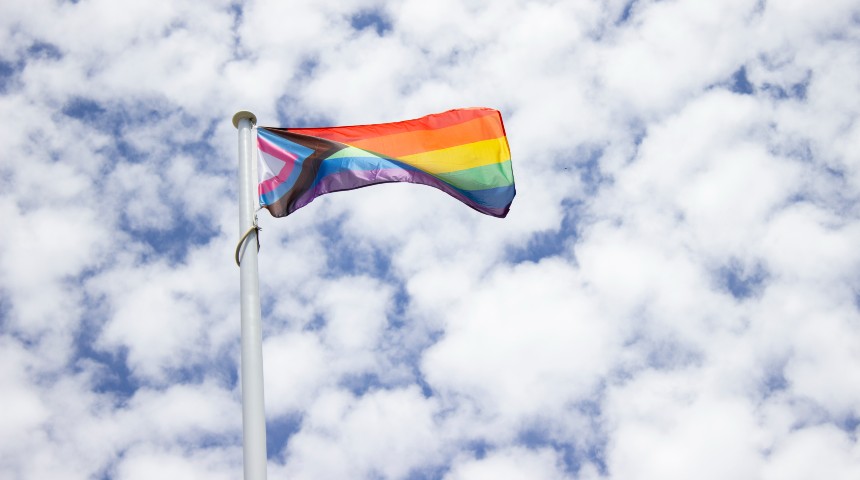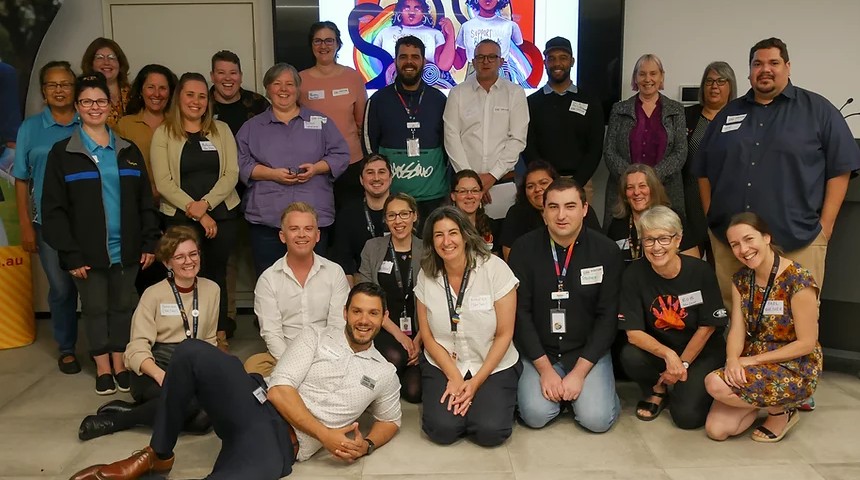
Murdoch University researcher and Noongar academic, Dr Bep Uink, along with researchers across WA says their new study has found seven major themes that impact the mental health and wellbeing of Aboriginal LGBTIQA+ young people.
The research has been driven by Aboriginal LGBTIQA+ researchers and community members.
In a new report published this year, Murdoch University researchers along with Telethon Kids Institute and Edith Cowen University explored the perspectives of Aboriginal LGBTIQA+ young people in the Perth metropolitan area and what services they need from the community to meet their healthcare needs.
“These themes intermingle and inform each other, which participants told us was an important part of their experience,” said the researchers.
Importantly, young people were incredibly proud of their Aboriginal and LGBTIQA+ identities, but there is still room for greater representation and inclusion.
Participants explained that their family and community influenced their acceptance of their identity as both Aboriginal and LGBTIQA+, and visibility across media and improved services helps to educate and therefore reduces their fears of stigma and the need to navigate environments to stay safe in social situations.
The key findings
Participants reported their caregivers were often worried about them being LGBTIQA+ because of a belief they will have a harder life. However, participants said this behaviour is hurtful and can negatively impact the way they view themselves.
This will help them feel less alone, more secure in their identity, and increase understanding amongst their families and communities.
“I definitely feel like if I did know other queer Indigenous people that I wouldn’t be so uptight about everything. I’d probably feel more free,” said one participant.
Participants called for more Aboriginal LGBTIQA+ representation at Pride events to show support and inclusivity for their Aboriginal identity and their rights.
“I feel quite left out when I go to Pride events and I don’t see a lot of Indigenous people.”
In an effort to stay safe and reduce the hurt they were facing in everyday life, participants actively think through how or if they should present their identities in different situations; the researchers call this ‘navigating’.
“It’s kind of a weird thing, right? Are you supposed to tell everyone as you meet them?”
The researchers state that navigating includes strategies for ‘coming out’, identifying allies and red flags, and reducing confrontation.
Several participants emphasised the importance of mental health support services, including therapists, psychologists and counsellors, but said that there is a need for specific Aboriginal LGBTIQA+ services and resources.
I feel like if you do go somewhere for mental health support, it’s LGBTIQA+ and then Indigenous people. There’s no support or information for those struggling with both. It’s like you’re one or the other.” Study participant
 Attendees at the Walkern Katatdjin Phase 1 Community Forum included representatives from First Peoples Rainbow Mob WA, Wungening Aboriginal Corporation, Yorgum Healing Services, Sexual Health Headquarters, WA AIDS Council, Edith Cowan University, Kulbardi Aboriginal Centre, and the Telethon Kids Institute. In this forum, the Walkern Katatdjin team presented the results of the Phase 1 interviews and yarnings groups. This was an opportunity for the Perth community to provide feedback on the research results.
Attendees at the Walkern Katatdjin Phase 1 Community Forum included representatives from First Peoples Rainbow Mob WA, Wungening Aboriginal Corporation, Yorgum Healing Services, Sexual Health Headquarters, WA AIDS Council, Edith Cowan University, Kulbardi Aboriginal Centre, and the Telethon Kids Institute. In this forum, the Walkern Katatdjin team presented the results of the Phase 1 interviews and yarnings groups. This was an opportunity for the Perth community to provide feedback on the research results.
What initiatives have been put into place already?
The Kulbardi Centre at Murdoch University is there to provide support with the aim to increase Aboriginal and Torres Strait Islander participation in higher education. Kulbardi displays signs of inclusion, providing a safe space where everyone is welcome, and plans to march in this year’s Perth Pride Parade to promote inclusivity as a result of the study.
Recently, the researchers that authored the Walkern Katatdjin Community Report have organised two Elder Forums within the Noongar community, held focus groups with Aboriginal community organisations, hosted a research scholarship for an Aboriginal LGBTIQA+ student from Murdoch University, presented at the Queering Curriculum Community of Practice WA and plan to expand their research to the Kimberly.
These initiatives provide a space for open communication with the aim to raise awareness of the needs of Aboriginal LGBTIQA+ young people and create positive change.
So, what can you do to support Aboriginal LGBTIQA+ young people?
Get educated about the issues LGBTIQA+ young people face, learn what language and behaviour is appropriate and make sure you let them know you support them.
The researchers recommend that services provide education materials for family about gender diversity, social programs and safe spaces, Aboriginal specific resources on how to talk about being LGBTIQA+ with parents and, for some young people, how to deal with returning home to Country and ‘jumping back in the closet’.
This study provides an insight into the perspectives and experiences of some young people living in Perth metropolitan region and does not represent the well-being of all Aboriginal LGBTIQA+ young people.
This research supports United Nations Sustainable Development Goals 3 to ensure healthy lives and promote good health and well-being.